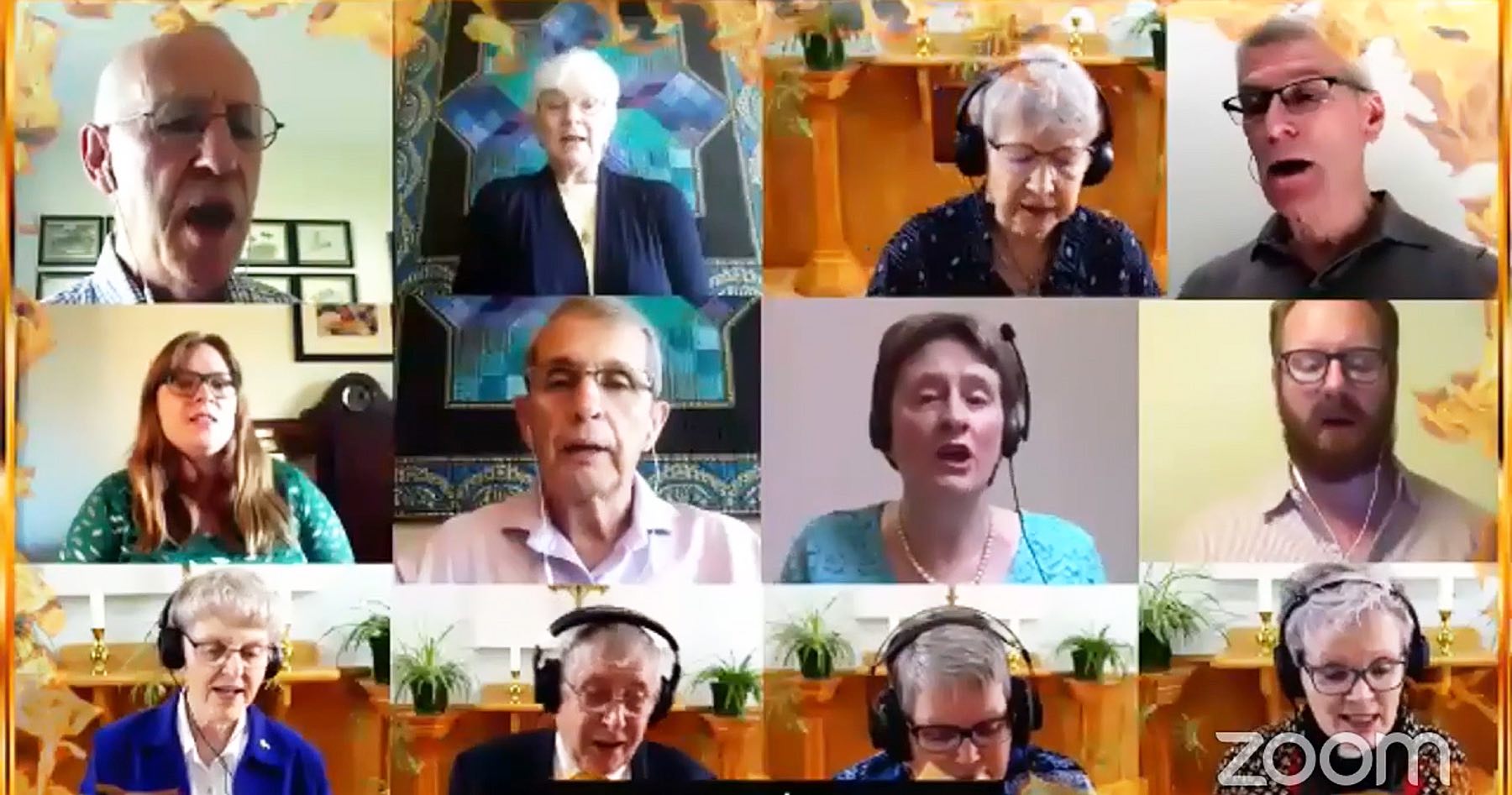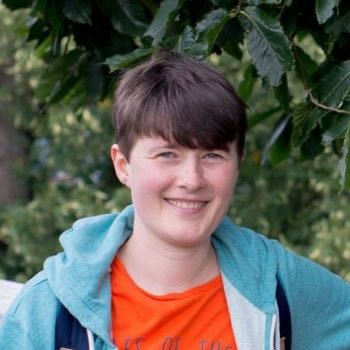On May 29, Bishop Anna Greenwood-Lee and over 150 clergy, lay and youth delegates from across the diocese gathered on Zoom for a historic synod. Not only was it the diocese’s 100th Synod — an occasion that would normally have been marked with a great celebration — but it was also the first synod to be held online.
The synod opened with a land acknowledgement by the bishop and a series of recordings from across the diocese that not only acknowledged the land on which we work, worship and pray, but also gave the members of synod a glimpse into the many beautiful places our members worship from. This was followed by the worship service, with readings and songs impressively performed by a virtual congregational choir, which each “choir” member recorded ahead of time.
One of the hymns sung was “Canticle of the Turning,” and this led into the bishop’s charge, which focused on Mary’s visit to her cousin Elizabeth, when Jesus and John the Baptist were both in utero. It is during this meeting that Mary says the words now known as the “Magnificat,” which in turn is the basis for the “Canticle of the Turning.” In that canticle, Mary asks, “Could the world be about to turn?” Bishop Anna expanded on this question: “Just as Mary asks this question all those years ago, we too, as the church of these islands and inlets in 2021, must also ask, could the world be about to turn? In what ways is God birthing something new, something salvific, something that is, at once, both joyful and exciting and a bit uncomfortable?
“For we know that the proud aren’t usually grateful for being scattered, nor do rulers much like being brought down from their thrones, nor the rich sent empty away. But: if the world is about to turn, if God’s mercy is going to extend from generation to generation, if the hungry are going to be filled with good things, if the humble will be lifted up, then, some of this discomfort is going to happen.”
The bishop then spoke about the “liminal” time we are living in and the notion of a great emergence: “Emergence happens all around . . . it happens. . . in our Anglican church when we open ourselves to the spirit and when we sit with our discomfort long enough to move into discernment… That is emergence. That is the Spirit’s work. That is the work of transformation, and it is only ever birthed out of liminality.”
Bishop Anna called on the diocese to put greater focus on race. The bishop spoke about the province of British Columbia and its founding on racist and discriminatory laws that aimed “to make sure that this was, as much as possible, a white province.”
“We have work to do. And the world is about to turn. God is at work in the world bringing the mighty down from their thrones and scattering the proud in their inmost thoughts — and as the privileged, this is going to make some of us feel uncomfortable. But it’s time, my friends, it’s time.”
You can watch the video and download the full text of the bishop’s charge on the diocesan website at www.bc.anglican.ca/news/bishops-charge-to-synod-100.
Ansley Tucker, dean of Christ Church Cathedral, then delivered a recorded tribute to Constance Isherwood, who served as chancellor of the diocese for over 30 years and died earlier this year. In her tribute, Tucker painted a picture of “Connie” as a formidable, talented, and unperturbable lawyer, who continued to practise law up until the day she died. Constance Isherwood was eccentrically old fashioned (she apparently continued to use a typewriter until 2015), but in so many ways, she had immense foresight — for example, in navigating the Anglican Church through controversies such as the ordination of women and equal marriage.
After the tribute, the formal proceedings commenced with a vote on a “No Debate List,” which included a number of changes and amendments to canons that were not considered contentious.
Business then turned to a report from Gail Gauthier, finance officer, who presented a few key facts and figures from the diocese’s finances since the last Synod met in 2018. These included the facts that congregations have received $859K in wage subsidies and just over $40K has been granted for training and education, while widows and retired clergy have received just over $90K. The diocese has also contributed to the revitalization of Indigenous languages, with support for language exchange programs between elders and youth, and on the UVic campus, the chaplain has provided spiritual guidance to over 30 students. On a lighter note, significant parish wine savings during COVID-19 have been offset by additional costs for hand sanitizer and floor markings.
After Gail’s presentation, the amendments to the canons and diocesan council regulations regarding the size and frequency of diocesan council and the removal of a designated position of a youth delegate on diocesan council were opened for discussion, and all motions were passed. For a complete list of motions passed by synod, visit the diocesan website www.bc.anglican.ca/resources/synod.
During the synod, elections were held for clergy and lay members of General and Provincial Synod and the following people were elected:
General Synod
Annalise Wall (youth)
Freddie Milne (youth alternate)
Catherine Pate (lay)
Ian Alexander (lay)
Jennifer Sharlow (lay)
Hayden Blair (lay alternate)
Sandra Leigh (lay alternate)
Marks McAvity (lay alternate)
Clara Plamondon (clergy)
Elizabeth Northcott (clergy)
Eric Partridge (clergy)
Craig Hiebert (clergy alternate)
Sulin Milne (clergy alternate)
Alastair Singh-McCollum (clergy alternate)
Provincial Synod
Jennifer Sharlow (lay)
Hayden Blair (lay)
Gloria Hockley (lay)
Michael King (lay alternate)
Clara Plamondon (clergy)
Craig Hiebert (clergy)
Lon Towstego (clergy alternate)
Alastair Singh-McCollum (clergy alternate)
Diocesan Court
Kathryn Chan
Synod Secretaries
Elaine Ellison (lay)
Paul Schumacher (clergy)
Alastair Singh-McCollum, incumbent at St. John the Divine, Victoria, then read the names of those representatives elected to the diocesan council at the 2021 spring regional gatherings held in April. The full list can be viewed on the diocesan website at www.bc.anglican.ca/synod-2021/nominations/pages/diocesan-council.
Following the elections, Synod received an update from Walter Stewart, co-chair of Transforming Futures. At the beginning of 2020, 13 parishes had developed their cases and were getting ready to implement them when the pandemic struck. Nevertheless, two parishes have already been able to raise money and get under way with implementing their Transforming Futures initiatives. While Walter acknowledged that many parishes will not feel comfortable fundraising at this time, given the economic impact of the pandemic, he emphasised that the key work for each parish is developing their vision and discerning what it is God is calling them to do.
Brendon Neilson then introduced a short video featuring interviews with parish representatives from around the diocese about how they have been living the diocesan vision and remaining resilient during the pandemic. Stories shared included worshipping in the woods, marking Remembrance Day and Advent with the wider community, giving out boxes of groceries (see cover image) and a creative children’s ministry with puppets.
While Bishop Anna took centre stage during the Zoom meeting, there were over 150 members of Synod listening, discerning and voting during synod. I spoke with some of those people to get their perspective on being a member of Synod.
Timothy Ray serves as a delegate from St. John the Divine, Courtenay, having retired from his position as rector’s warden. “This was my first synod so I had no particular expectations. Although the masses of reports and materials on the [diocesan] website that were required reading suggested it might be a bit dry, I was so wrong. The synod just flew by. There was nothing dry or laborious about it. The opening check-ins and acknowledgements from each parish were very moving and set the tone. It was hard not to imagine God’s grace during the opening. The choir on Zoom was sensational. But the highlight for me was Bishop Anna’s speech to. She was spellbinding. Her message alerted us all to a fundamental change that is coming. She called it a ‘liminal time’ but spoke of it in inspiring terms and made it sound exciting and transformational.”
Chenda Bishop, rector’s warden at St. Mark, Qualicum Beach, who has previously attended four synods over the last 40 years, reflected a similar sentiment: “The Zoom meeting was well crafted and a good use of technology. I did miss the interaction with folks from other parishes and sharing experiences, but I loved the opening greeting from each parish. It was very well done and showed the diverse locations and cultures within our diocese. It left me feeling a greater connectedness than past synods I have attended. I hope future synods might keep some of these inclusive features.”
The next regular session of synod will be held in September 2023.




